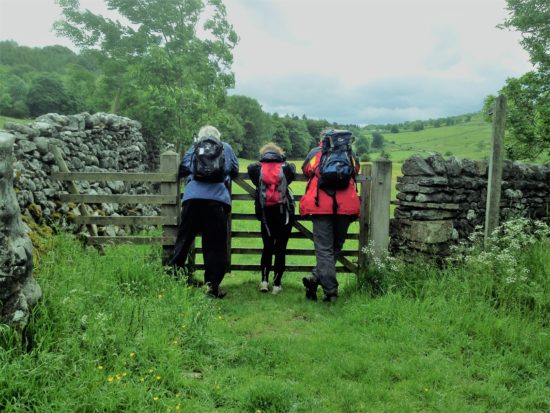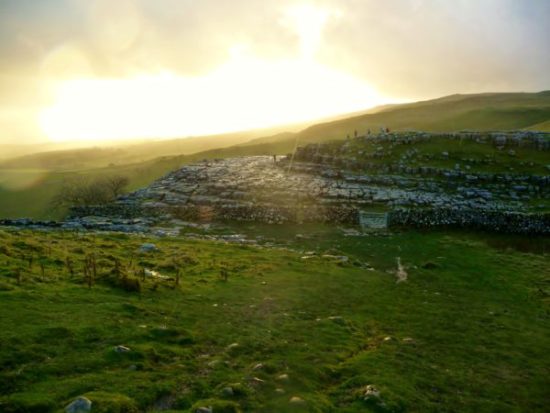Room to Breathe Walking & Talking Group, 22 June
Time to give yourself some space, room to stretch your legs, air to fill your lungs, and conversation to feed your heart and mind in the beautiful Yorkshire Dales.
Psychotherapist Chris Powell and GP Andrew Wilson run a group 4 times each year spending a day walking in the Yorkshire Dales and encouraging supportive conversations as we walk and in a group over lunch. The next walk marks the start of Summer on Saturday 22 June, 9.30 am – 4.00 pm near Blubberhouses.
Book or find more details here: http://www.spark.uk.net/room-to-breathe
Why memory fails. Café Psychologique, 28 May, 8.00 pm
How memory works and what causes it to fail seems to be causing increasing amounts of concern, perhaps because of its connection to increases in dementia and similar disoders. Having a good memory seems to stand for being sharp in other ways too, so perhaps even if we don’t worry about illness we still like to think we can remember things, at least the things that matter to us.
Of course trouble strikes inexplicably when we can’t remember something. Or even worse, when someone else disagrees with our memory. Neuroscience and neuropsychology are opening up new ways of understanding memory, how it works and why it seems to go wrong. Add into that the idea of ‘selective memory’ (forgetting things when it suits us), and analytic ideas that every memory or lost memory has a meaning, and there is plenty to talk about… if we can remember to turn up at the next Café Psychologique.
Clinical Psychologist Dr Michael Jubb will introduce the next café on Tuesday 28 May, 8.00 pm to 9.45 pm in Seven Arts, Chapel Allerton, Leeds. The Café costs £4 on the door.
There is a poster to download here:
Café Psychologique May June 2019
You can read how the Café works here:
Café Psychologique Rules
Yoga: bodies, minds and balance. Café Psychologique, Tuesday 30 April, 8.00 pm
One source quoted by the United Nations News claims that 2 Billion people practice yoga around the world. Staggering as that may seem, it is certainly clear there has been a surge of popularity in the UK with Yoga Centres, yoga clothing and other yoga products seeing huge increases in sales.
At its best yoga seeems to offer a way of bringing body and mind into balance, and perhaps offer a way into emotional and even spiritual stability. However, the way it is growing and marketed in the UK seems to pose a number of questions: is yoga really about what you wear and how popular you are in a class? Do you have to be a skinny, white woman to do yoga? Is yoga practiced half as much as it is boasted about? Is there actually a race to enlightenment, and if so who is winning?
Perhaps, most significantly from a psychological perspective, there is also the question of whether it is possible to get caught up in ‘spiritual bypassing’, using yoga’s spiritual techniques to avoid coping with things in real life.
These questions and others will be explored in this café and our conversation will be introduced by yoga teacher, Amelia Radford. We’ll be limbering up and getting into our psychological poses on Tuesday 30 April, 8.00 pm to 9.45 pm in Seven Arts, Chapel Allerton, Leeds. The Café costs £4 on the door. Everyone welcome – loose clothing not essential.
There is a poster to download here:
Café Psychologique April 2019
You can read how the Café works here:
Café Psychologique Rules
The Psychology of Fun, Café Psychologique 26 March
Are we having fun yet? Sometimes it’s hard to tell. One person’s fun is another person’s torment, and some types of ‘fun’ activity are quite hard work. Humans certainly seem to need fun. Psychiatrist Stuart Brown, and found of the National institute of Play in California (it just had to be California) says play is what builds complex, skilled, responsive, socially adept and flexible people. Even as adults, play creates new neural connectinons, and people who do not play and have fun are often joyless, workaholic, and fundamentally depressed.
So we need fun, but are often slow to make space or take opportunity for it, and it really is hard to predict what any individual will find fun. More contentious is the question of whether there is a genuine difference between people about what constitutes fun, or whether there are some things that are intrinsically fun – splashing in puddles perhaps, or being tickled, or watching birds perform courting rituals on the wing – and it is inhibition and learned resistance that stops some people from enjoying them.
This café will attempt to explore the psychology of what fun is and how we can engage with it more fully. Terry McAndrew is a regular Café Psychologiste and also a Content Manager at the NHS Leadership Academy, and will introducethis conversation and perhaps even stimulating some fun on Tuesday 26 March, 8.00 pm to 9.45 pm in Seven Arts, Chapel Allerton, Leeds. The Café costs £4 on the door.
There is a poster to download here:
Café Psychologique March 2019
You can read how the Café works here:
Café Psychologique Rules
Group Analysis in the Open Air, Room to Breathe, 30 March

Group analysis provides a way to think about difficulties and find ways of dealing with them through talking with other thoughtful people who are genuinely interested in exchanging experiences and ideas. Chris Powell and Andrew Wilson run a group that meets 4 times each year to spend a day walking in the Yorkshire Dales and uses group analytic methods to encourage supportive conversations. The next walk is to mark the start of Spring, on Saturday 30 March, 9.30 am – 4.00 pm near Blubberhouses.
Book or find more details here: http://www.spark.uk.net/room-to-breathe
Pets: who owns who? Café Psychologique 26 February
Pets are clearly popular: over half of British Households own a pet, or are owned by a pet! But the BBC reported in 2017 that pet ownership is falling, mainly due to economic pressures and an increase in people renting accomodation where pets are not allowed. However, some people seem unable to live without their pets. So much so that from the outside the relationship might not look just co-dependant, but that the owner is dependant on the pet. Certainly some pet owners lavish time, money and attention on pets that seem to hardly give them the time of day. Yes, we do mean cats. Other pets seem able to take over the household and all it’s disposable income in return for taking their owners out for a drag twice a day.
However, there are plenty of studies that show the psychological and physical benefits of pets, and plenyy of evidence from pet owners that they find pets add pleasure and fulfilment to their lives, regardless of the demands and costs they bring with them.
This café will explore the psychology of owning pets and the nature of the relationships we form to pets – whether we love them or loathe them.
Dr Carol Martin is a clinical psychologist and self-confessed cat owner. She will introduce this Café on Tuesday 26 February, 8.00 pm to 9.45 pm in Seven Arts, Chapel Allerton, Leeds. The Café costs £4 on the door.
There is a poster to download here: Café Psychologique February 2019
You can read how the Café works here:
Café Psychologique Rules
Commitment: the problem of sticking to things. Café Psychologique 29 January
Good intentions lead us to make new year resolutions, decide to lose weight, learn to play an instrument, make it to university, buy a house, or even promise to spend the rest of our lives with someone else.
There’s no doubt that these, and many other things we set out to do, demand commitment from us. In fact without making a commitment many ventures never start at all, whether setting up a busines or embarking on a serious relationship. Whether it’s an exercise class, a religion or a clothing brand the people selling are looking for a commitment from us. However, maintaining that commitment is often harder than it appeared at the start, and there’s also no doubt that many of us fail to remain committed, sometimes to big things as well as small.
So why is it so hard to make a commitment and stick to it? Is it just that we are weak, lazy creatures with a predisposition to prefer junk food to exercise, sleeping around to fidelity, the easy option to the noble. It might also be that some comitments are better not kept.
This café will explore the psychology of when and how commitment is needed and helpful, what gets in its way, and what helps us keep to the commitments we want to make.
Dr Philippa Sammons and Dr Emilie Smithson are clinical psychologists and will introduce this Café on Tuesday 29 January, 8.00 pm to 9.45 pm in Seven Arts, Chapel Allerton, Leeds. The Café costs £4 on the door.
There is a poster to download here: Café Psychologique January 2019
You can read how the Café works here:
Café Psychologique Rules
Room to Breathe back in the Yorkshire Dales 12 January 2019

The next Room to Breathe Walk is Saturday 12 January, heading up the Washburn Valley from Fewston Reservoir near Blubberhouses. There will be chance to think and talk with skilled facilitators to get the New Year off to a great start. We walk 8 miles, have 90 minutes in structured groups, and spend the day helping each other make progress on the way ahead. There’s more information here.
Stretch your legs, your lungs and your mind in the Yorkshire Dales.
Sleep: why we need it and how to get it. Café Psychologique, 27 November
A good night’s sleep – most of us have an idea of what that feels like and just how good it leaves us feeling, but how does it work and why can it be so elusive? It seems all mammals and birds sleep. Probably reptiles too but scientists seem less clear about that. Even going further down the food chain, plants and bacteria have a resting phase, so maybe not sleep, but it seems all living things probably need rest, and complex organisms have a sleep-wake cycle which needs to be made up if it’s missed.
The reasons for this seem complex too. Common understanding includes the need for the body to physically recover and for the mind to process information gained in the day. Perhaps less well known is that sleep is key for managing body temparature, maintaining weight and ensuring a well functioning immune system. As for brain function, start to lose sleep and we also start to lose memory, experience mood imbalance and fail to concentrate.
All of which begs the question, if sleep is so integral to human functioning why did the Great British Sleep Survey find that only 39% of adults get a good night’s sleep? Even those of us who do sleep well, often find that we are not getting enough because we are slow to get to sleep, wake early, or just don’t get to bed in time. Even more importantly, the question of how to deal with sleep difficulties seems to have as many beliefs and myths as an insomniac has tosses and turns.
Emily Stanyer is a Sleep Researcher in the School of Psychology, University of Leeds, and she will introduce our conversation about why we need sleep and how to get it on Tuesday 27 November, 8.00 pm to 9.45 pm in Seven Arts, Chapel Allerton, Leeds. The Café costs £4 on the door.
There is a poster to download here: Café Psychologique November 2018
You can read how the Café works here:
Café Psychologique Rules
Halowe’en: Remembering the Darkness. Café Psychologique, 23 October
All Hallows Eve was intended to begin the honouring of the saints celebrated on All Hallows Day. Hard to keep that in mind when faced by half-a-dozen small children demanding payment by menaces – also known as ‘Trick or Treating’. What’s true is that contemporary celebrations of Hallowe’en have moved just as far from the Celtic harvest festivals and Roman celebrations of the dead that prefigured the original Christian expression of Hallowe’en
Nonetheless, a preoccupation with the ghoulish, the ghastly, the possession of evil, and the permanence or otherwise of death persists through the centuries. The present packaging of halloween distracts from the useful, even vital role that might be played in having our fear of the dark, the demonic or the unknown brought to mind. These things are clearly too troubling to attend to every day, but too important to completely ignore. Much of contemporary culture, including the world of self-improvement and self-help demands we focus on the positive, for fear the negative will weigh us down and hold us back. This Pollyanna approach is easily challenged by the realities of a world in which things do go wrong, not everyone is lovely, and we can’t always win.
This café will help us explore how and why we might need to be reminded of the darkness, and the place of Hallowe’en in connecting us with not just our fears about pain, loss and death, but also our joy in life.
Our conversation will be introduced by Café Psychologique favourites storyteller Matthew Bellwood, and performer and writer Alison Andrews, on Tuesday 23 October, 8.00 pm to 9.45 pm in Seven Arts, Chapel Allerton, Leeds. The Café costs £4 on the door.
There is a poster to download here:
Café Psychologique November 2018
You can read how the Café works here:
Café Psychologique Rules
Category







